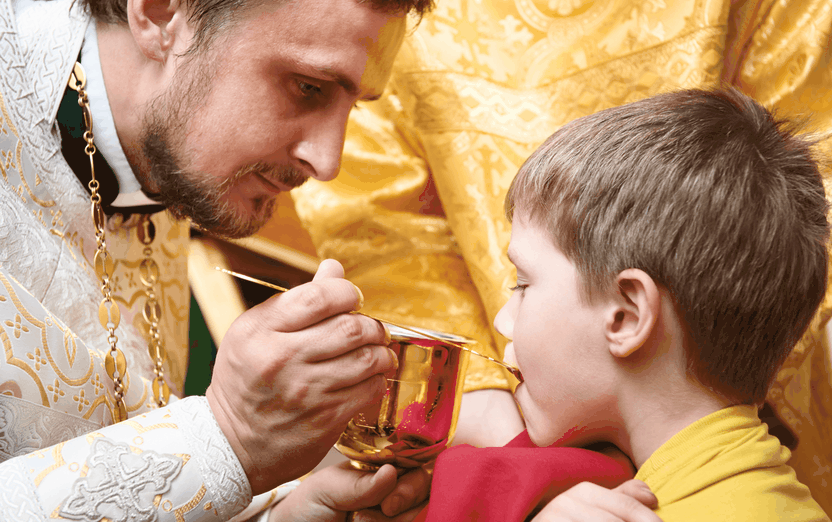The Eucharist is at the very center of Orthodox piety, worship and theology. One is encouraged to receive Holy Communion as frequently as possible. However, as frequent communion is encouraged, casual communion is not. One must always prepare themselves through prayer, fasting (see above) and confession before receiving Holy Communion. A cavalier attitude toward Holy Communion demeans, not the Eucharist, but the individual who receives it un-prepared. Holy Communion is a fire that devours and burns away our sins. But it can also become a fire that devours and consumes us if we partake of it unworthily. Remember, Holy Communion is a gift and should be received with joy in the fashion prescribed by the Church.
Please Be Respectful
As you approach the Chalice to receive the Eucharist, please do so with utmost respect and reverence, for you are receiving the Lord, Jesus Christ into your being. No sudden movements should be done in front of the Chalice. In order to prevent accidental contact with the Chalice, please do not make the sign of the cross near the Chalice. Ladies should blot off their lipstick prior to receiving Holy Communion and brush any lose hair away from the face and/or chalice.
Eating / Fasting Before Communion
Everyone receiving Holy Communion at the Divine Liturgy must observe the ancient custom as prescribed by the Holy Canons of fasting from every food item. No person should approach and receive Holy Communion if they have not fasted the morning of a Divine Liturgy. Traditionally, no food or drink is taken (complete fast) from sunset on Saturday until after receiving Holy Communion. The elderly who require medication may take small amounts of food to help the medication work effectively. Young children are encouraged to learn the discipline of fasting at an early age. Children older than ten years of age should practice the complete fast. Tots may require breakfast but should not approach the chalice with food particles remaining on their face. Babies need nourishment and should eat at their prescribed time.

